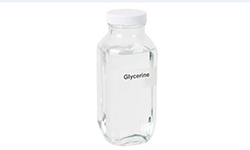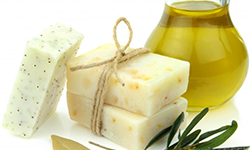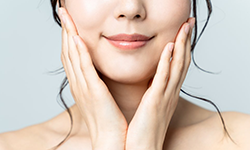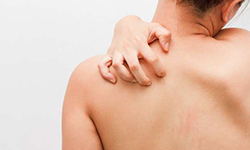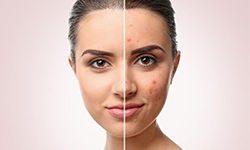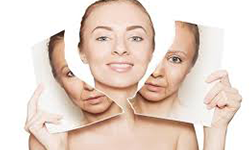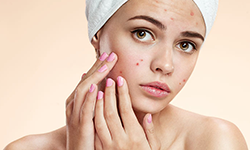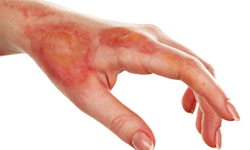What is Glycerin?
Glycerin, also known as Glycerol, is a colourless, odourless, non-toxic, sweet-tasting liquid which has the consistency of a thick syrup. A sugar and alcohol organic compound, it is found in many lipids, generally known as glycerides, and is used widely in the medical, pharmaceutical, as well as the food industries. Derived from animal fats or vegetable oils, Glycerin, most commonly used in the preparation of soaps, is also known for its wide-ranging benefits in skincare and as such is used extensively in the beauty, personal care and healthcare sectors.
What is it made of?
Glycerin is generally obtained from plant and animal sources where it occurs in fatty acids, triglycerides, esters of glycerol with long-chain carboxylic acids. The molecular formula for Glycerin is C3H8O3 and it consists of carbon, hydrogen and oxygen. The carbon atoms are bonded to an –OH or hydroxyl group. Glycerin is water soluble because of these hydroxyl groups which also make it a water retaining agent.
Where is it used?
Glycerin is used in multiple sectors including medicine, pharma, personal care and skin and beauty products. Used as a solvent, emollient, humectant, laxative, lubricant, pharmaceutical agent, or sweetening agent, Glycerin is the ingredient that helps smoothen a toothpaste and softens the skin when used in skincare and beauty products.
Glycerin is found in toothpaste, mouthwashes, soaps, hair care products and even in cough syrups, as a tablet-holding agent as well as an anti-freezing component in blood banking to preserve red blood cells. The US FDA has classified glycerin among sugar alcohols as a caloric macronutrient. The food industry uses Glycerin as a thickening agent or a filler. In addition, as Glycerin does not raise blood sugar levels, it is also used as a sweetener in diabetic foods.
Glycerin and skincare
Glycerin has long been an essential component of beauty care products. It is the super component in skin care products that helps retain moisture, prevents dryness, and acts as a smoothening agent giving the user healthy, glowing skin.
The main cause of dry skin is the loss of water in the upper layers of the skin. Moisturizing agents form a protective oily layer on the epidermis, thus preventing water evaporation. Humectants, such as Glycerin, help in drawing and retaining water in the outermost layer of the skin.
As Glycerin generally suits all types of skin, be it dry or oily, it is the main ingredient used in skincare products such as soaps, ointments, creams, body lotions, face scrubs etc. In fact, Glycerin-based soaps are especially recommended to people with sensitive, irritable skin as it prevents skin dryness thanks to its moisturising properties.
Benefits of Glycerin for the skin
Since generations, the benefits of Glycerin as a prime constituent in skincare products has been well documented. Even before the marketing blitz of cosmetic companies in modern times, women have long known about the amazing properties of Glycerin as a beauty essential in skincare routines.
The benefits are wide-ranging with Glycerin acting as:
An effective moisturiser, helping prevent dry skin
Glycerin is a humectant that helps in preventing water loss and aids in retention of moisture in the upper layers of the skin thus preventing dry and irritable skin. Use of glycerin-based body lotions or moisturisers helps heal cracked and dry skin keeping it glowing, soft and smooth.
Safeguard against skin infections and skin rashes
Research studies published in reputed medical journals state that Glycerin has a healing effect on the skin. Skin becomes thick, scaly and itchy due to skin diseases such as psoriasis, fungal infections like eczema as well as skin rashes. Glycerin aids in rejuvenating and repairing skin cells helping them to grow regularly and stops abnormal shedding.
Remedy for acne
Trying to get rid of acne and pimples can be a terrible ordeal. People suffering from acne troubles must include Glycerin/ glycerin based products in their skincare routine as applying Glycerin to the face has been proven to give positive results against this skin condition.
THE 4 BEST INGREDIENTS TO GET RID OF ACNE SCARS
• Anti-ageing booster
Wrinkles, crow’s feet, fine lines on the forehead, sagging cheeks are the first signs of ageing that are reflected on the face. Although aging is a natural, gradual process, it affects the skin harshly making it look dull, listless, rough and dehydrated. Glycerin is a popular anti-ageing remedy that helps retain moisture and improves skin elasticity, reduces the fine lines on the face thus helping counter the ageing process.
EXPERTS SPEAK: DERMAL FILLERS IN ANTI-AGEING PROCEDURES
• Blotches remover
Blackheads, ugly spots/marks or blemishes on the face are a headache for anyone suffering from them. Regularly using Glycerin, a humectant, helps keep the skin adequately hydrated, aiding in reducing spots and marks over time. Further, Glycerin has anti-bacterial and anti-fungal properties which help in maintaining the pH balance of the skin.
HOW TO MAKE YOUR ACNE SCARS VANISH
• Protector against heat & burns
The harsh rays of the sun can cause a lot of skin problems. Glycerin has also been used as a milder form of sunscreen block to protect the skin against harmful UV contamination. Its anti-bacterial properties help clean out pollutants from the skin restoring the skin to its previous glowing complexion.
Glycerin also acts as a salve for minor burns, although any severe burns must be immediately attended to by a doctor. For smaller injuries caused by burning, Glycerin has a soothing, calming effect on the skin, reducing itching and burning.
Glycerin For Oily Sklin
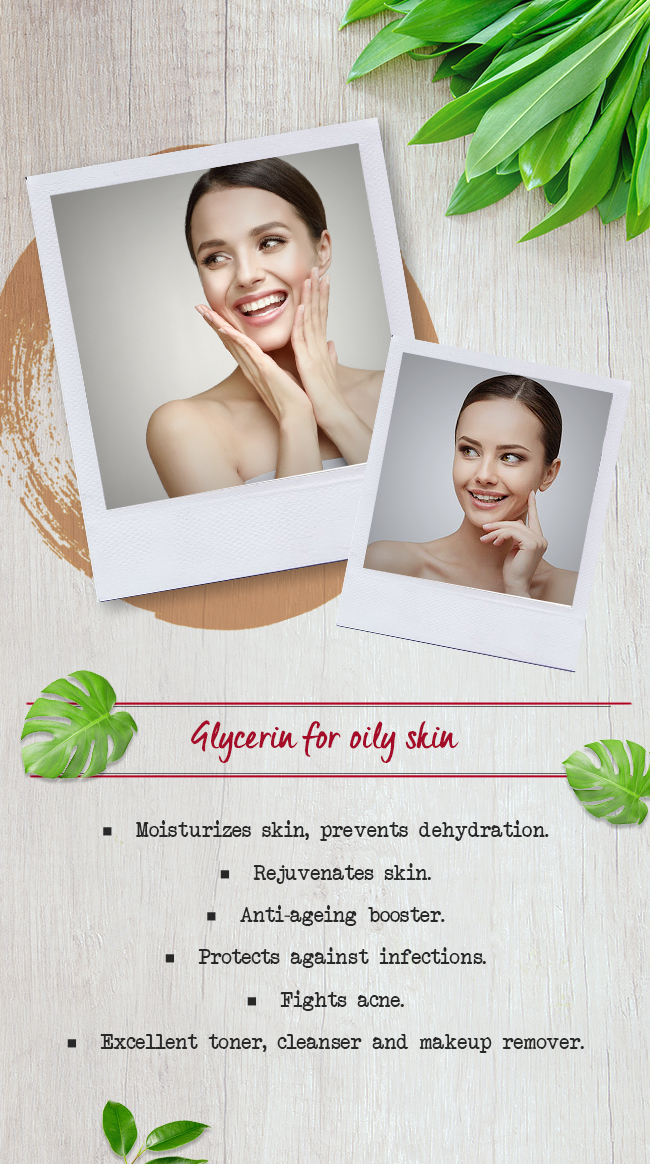
Soft lips with Glycerin
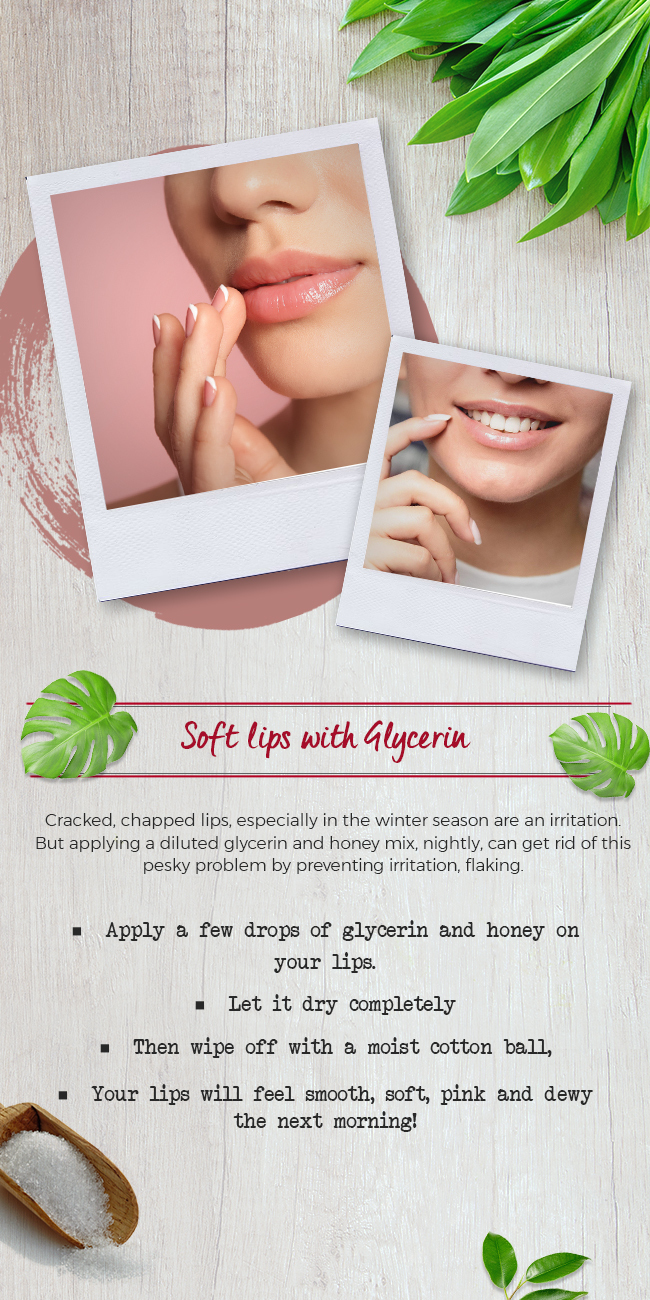
Homemade Glycerin face mask for glowing skin in the winter
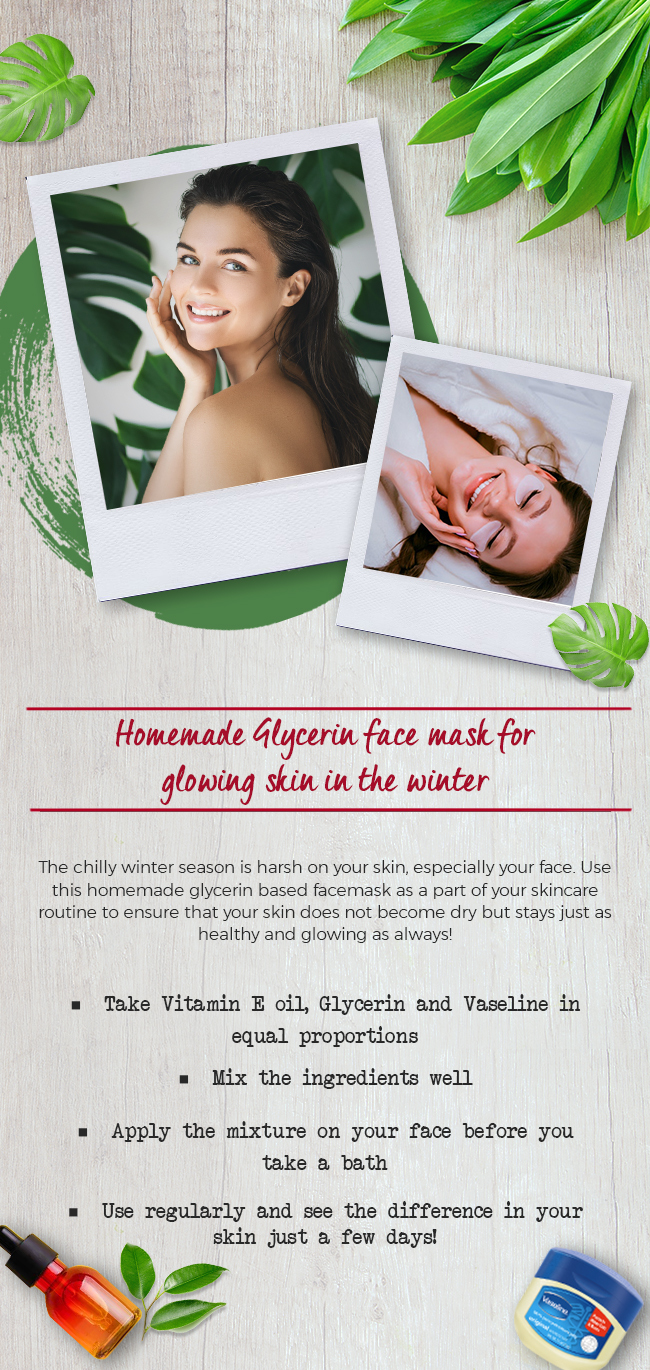
5 Steps To Maintain Healthy Skin
Side effects of Glycerin on skin
Although there are no serious side effects in using Glycerin, some people with sensitive skin may experience
• Skin Irritation
• Burning or stinging sensations on the skin
• Redness of skin
• Dry tacky feeling skin
Glycerin has no known interactions with other drugs, but if problems persist, visit your dermatologist at the earliest.
DIY FACE MASK FOR SENSITIVE SKIN
Precautions to take when using Glycerin
Though Glycerin is quite gentle on the face, some users may experience mild rashes or reactions to it, so as with all chemicals, caution is advised during use.
Some common precautions while using Glycerin:
• Take a skin test, preferably on the inside of your arm, to check if you are allergic to it
• Always use diluted (with water) glycerin before you apply it on your face
• Don’t leave Glycerin on your face for longer than necessary. Wash it off once you are done
• If your skin is sensitive to the sun, use a sunscreen after applying Glycerin
• Don’t mix Glycerin with other creams and lotions; it will feel heavy on your face
We hope this article on Glycerin, its uses, benefits, side effects and precautions was informative. Do not hesitate to contact your dermatologist/skin care expert for all your skin troubles on https://www.skinandhairacademy.in/


